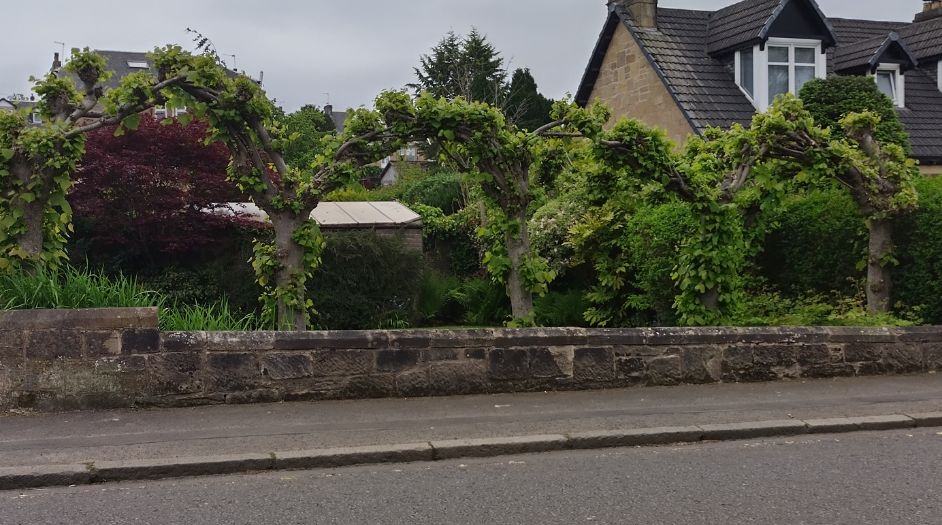
If you’re used to seeing flowers growing in lawns where they are cut down to size every time the mower comes out, seeing them growing in open ground is quite a revelation. We have buttercups waving their yellow heads on knee-high stems along the footpath, self heal more than 20 centimetres tall, and these speedwells, which I thought were short stemmed, creeping at ground cover level, coming up light and airy, and creating a sea of blue in some places that I almost mistook for bluebells. This gives a feeling of lightness and movement to the understorey of the trees, and adds to the sense of exuberance I’m getting this spring. We are in peak hawthorn time now, with elder and rowan just beginning, and the place looks like Fat Sam’s at the end of Bugsy Malone, sprayed with foam everywhere.
I wrote about the blossom last time, because it was the first thing that impressed me about the new territory, but this year I have been struck by the number of lime trees. They are everywhere, sheltering the Kirk, lining avenues in the park, ornamentals on the mowed verges, but in the older parts of the Lang Toon, they were used to demarcate the boundaries of front gardens, and many of them are still there. Some of them have been allowed to grow

some are cut back to the bare minimum

but this one gives you the idea of the look the original planners must have been going for in the days when a pleached lime avenue was the must-have for the professional owners of the new suburban villas.

In a small diversion that isn’t as devious as it first appeared, I’ve been reading this essay from my friend and fellow geopoetician, the ethnologist and activist Mairi McFadyen. https://www.mairimcfadyen.scot/fragile-correspondence/2023/essay dealing with the clearances and the consequences of the community buyout of Abriachan Forest. She talks about how the loss of language leads to the loss of local knowledge, the exploitation and degradation of the land, and in this case, the removal of the local people. It’s a wonderful essay, raising many of the issues and preoccupations that inform my poetry, and I can’t recommend it warmly enough.
But the point I’m working towards is that the Lang Toon doesn’t really have those problems. On the contrary, throughout its very long history, people have been brought here to serve whatever needs the ruling classes felt were important at the time, and abandoned. These houses were built for the managers of the mines, all gone, and later of the electrical industry, all gone, and now we are mostly a commuter town with people living here and working in Glasgow or East Kilbride. This too has consequences for land use, local knowledge, and community building, and though I feel there are grounds for optimism, I realise there are a lot assumptions I’m going to have to unpick as I go into the next poems, the next book.
This may be a slower process than I like. One of the long-standing medical conditions that plague this family has struck again, and we have someone in hospital. He’s getting good care, but not being able to drive makes things very complicated! There may be very little activity on this account for the next few weeks.

